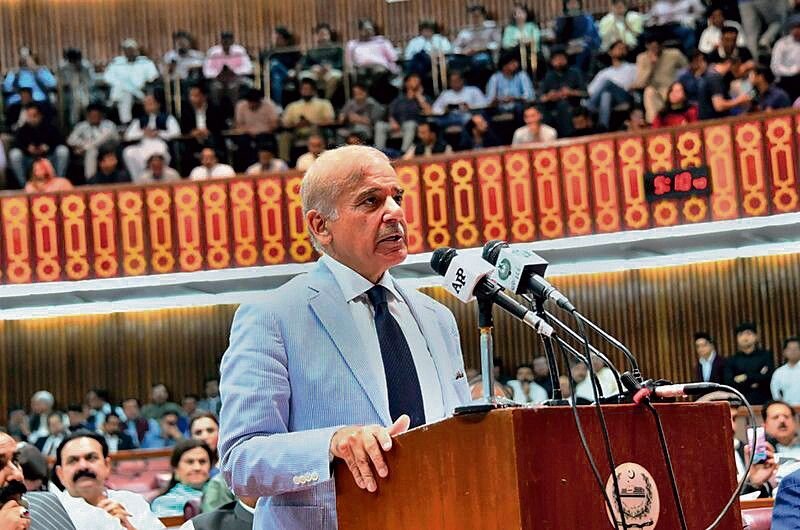Pakistan on Monday enacted a law, capping the Chief Justice’s tenure to three years, setting up a special commission to appoint the top judge from three senior-most judges of the Supreme Court and taking away the apex court’s suo motu powers, amid opposition from the jailed former prime minister Imran Khan’s party.
President Asif Ali Zardari on Monday gave his assent to the Constitution (26th Amendment) Act, 2024, after it was passed by both Houses of Parliament — the Senate and the National Assembly.
With the 26th Constitution Amendment Bill becoming law, the government can now block Justice Masoor Ali Shah from succeeding the current Chief Justice Qazi Faez Isa, who is set to retire on October 25 after reaching superannuation, which is 65 years.
The original idea of extending the retirement age of judges from 65 to 68 was not part of the amendment.
On Sunday, the Bill was greenlit by the Senate with a two-thirds majority. Then, during a session that began late on Sunday night and continued past 5 am on Monday, the National Assembly also passed the Bill, which the opposition alleges is aimed at watering down the powers of the independent judiciary, with 225 members in the 336-member house supporting the proposed legislation. According to a National Assembly secretariat notification, ‘The Constitution (26th Amendment) Act, 2024’ “received the assent of the President”.
The Pakistan Tehreek-e-Insaf (PTI) and the Sunni-Ittehad Council (SIC) opposed the amendment in the National Assembly, but six independent members who held their seats with the support of the PTI supported the Bill.
The government needed 224 votes to pass the amendment.
The Senate on Sunday night voted 65-4 to approve the amendment with the required two-thirds majority. The ruling coalition needed the support of 64 members in the upper house of the parliament.
The Bill, comprising a set of amendments, including a special commission to appoint a chief justice out of three senior-most judges of the Supreme Court, was approved by the Cabinet on Sunday with a consensus among the ruling coalition partners. Law Minister Azam Tarar said the ‘new-face’ commission would consist of the Chief Justice, four senior-most SC judges, two senators and two national assembly members — one of each from the opposition.

